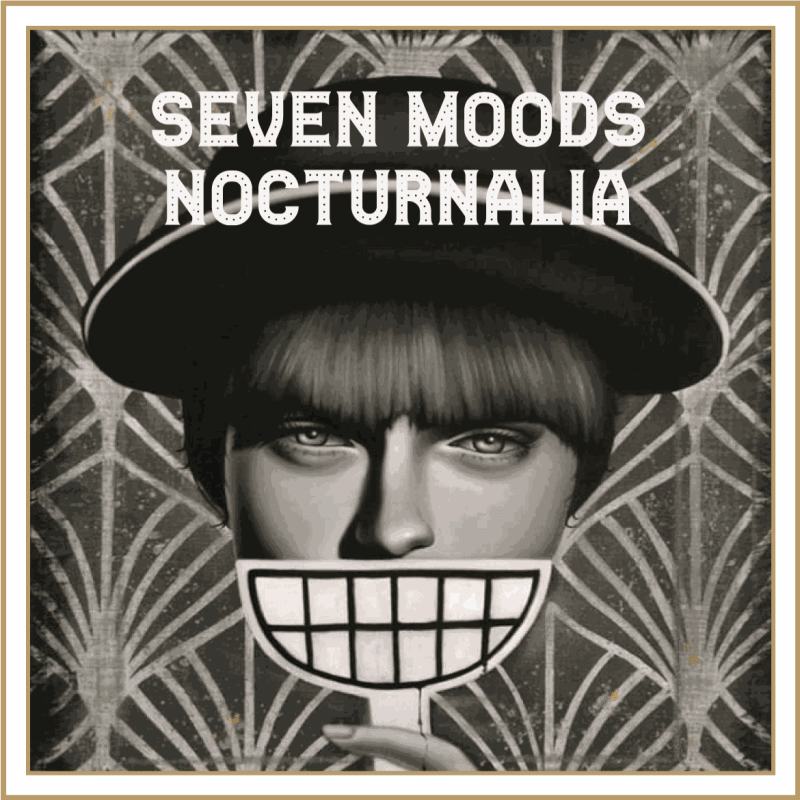Dorothy Circus Gallery is ready to celebrate the Roman spring with a double personal show of two European artists, the Italian Seven Moods and the Swiss Zoe Byland. Both artists are already part of the avant-garde of the contemporary international figurative scene. Appreciated by connoisseurs of the most refined painting techniques, Byland and Seven Moods have recently exhibited their stunning artworks in the group show dedicated to the theme of water “Lacrima Aquarium”, held at the Acquario Romano Museum, along with 33 of the most renowned artists from the pop surrealist scene.
This time, as prime protagonists of the Red Hall of Dorothy Circus, Byland and Seven Moods, with their inevitably distant languages, find themselves involved in a common Nocturnal theme, which seems to emerge from the photography of the early ‘900 as well as from the film-noir era; this topic carries with itself the mystery of distant memories, the nostalgia of a vintage aesthetic, and all the iconography of the pop philosophy of our present, in the synthesized symbolism of tattoo, hi tech imagery of science fiction’s code and the overbearing street art language, tying them together in an alchemical mix of codes and numbers belonging to a future yet to be drawn.
With Seven Moods’s brand new 8 oil paintings, the grace and the beauty of his metropolitan characters cross with a cynical attitude the crime fiction like scenery, cutting the darkness with their white lace skirts and starched collars.
Everything happens at night, under a sky lit by microscopic stars and white rain: life, love, death, fast like the fading of a scent in the wind and intense like a flower that continues to flourish.
Meanwhile, a strange day filters through the clouds and stops on the 8 brand new Zoe Byland’s canvases, illuminating the pages in black and white of school students’ diaries. They are little more than children or much more than little girls; they are aware of the cold embrace of the passing of time, and they know mysterious destinations; they crop papercuts to fly away and are able to pose in the depths of an elegantly furnished ocean for as long as necessary, in order to subvert our expectations so as to continue playing in the viewer’s head, leaving him to fantasize in the throes of a multitude of suggestions. Byland’s surrealism settles in the era of “good and nice costume”, in a re-reading as romantic and nostalgic as lucid and ironic. With one hand, it brings to light all the charm of a vintage fabolous epoch, while with the other hand, it turns into darkness everything that does not belong to Fantasy.


